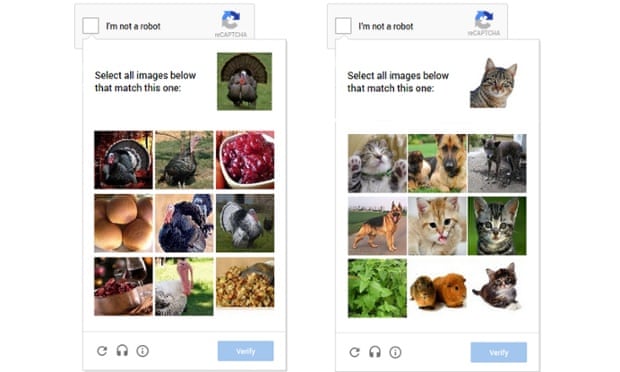No more infuriating Captcha: Google simply asks ‘are you a robot?’

Google has begun simply asking users whether they are human or not, instead of making them spell out tricky words as a security measure.
The new “No Captcha reCaptchas” are the latest in user analysis that allows Google and other websites to monitor user behaviour to figure out whether they are human and prevent robots from abusing the site.
“For years, we’ve prompted users to confirm they aren’t robots by asking them to read distorted text and type it into a box,” said Vinay Shet, Google’s product manager for reCaptcha. “But, we figured it would be easier to just directly ask our users whether or not they are robots – so, we did!”
Scrapers and ticket touts
Robots access sites to scrape information and compete with users for purchases, events and sessions.
Many services, including comparison sites, use robots to run the searches for users on multiple websites at once. Others, such as ticket touts, use robots to buy all the tickets for a concert as soon as they’re made available, forcing concert goers to buy them through a third-party reseller at an inflated price.
The Captcha tests are used to try and block nuisance robots from accessing sites while allowing humans free access to the site. Since the introduction of Captcha tests that make humans guess some semi obscured text or image, artificial intelligence has improved so that robots can guess the correct answer too with a 99.8% accuracy.
To combat the increasingly intelligent robots, Google developed software that monitors how users engage with the Captcha tests – where they click, how long they linger, their typing cadence, whether it is consistent or random – to help see whether a human was filling in the form or not.
The “advanced risk analysis” software now enables Google to do away with the obscured text in most cases, simply watching how a user checks a box.
If the user passes, that’s all they will need to do. If some doubt as to whether they are human or not remains, they will then be asked to fill in a Captcha form, which could involve clicking or tapping on cats or dogs instead of entering text into a box.

“In this version of the Captcha challenge, you’re asked to select all of the images that correspond with the clue,” explained Shet. “It’s much easier to tap photos of cats or turkeys than to tediously type a line of distorted text on your phone.”
The new checks are already being used by Snapchat, WordPress and Humble Bundle, with more websites likely to adopt the easier to use forms in the near future.
• Facebook launches third free anti-virus scanner
• Google Glass review: useful – but overpriced and socially awkward
• Jeff Bezos: I’ve made billions of dollars of failures at Amazon